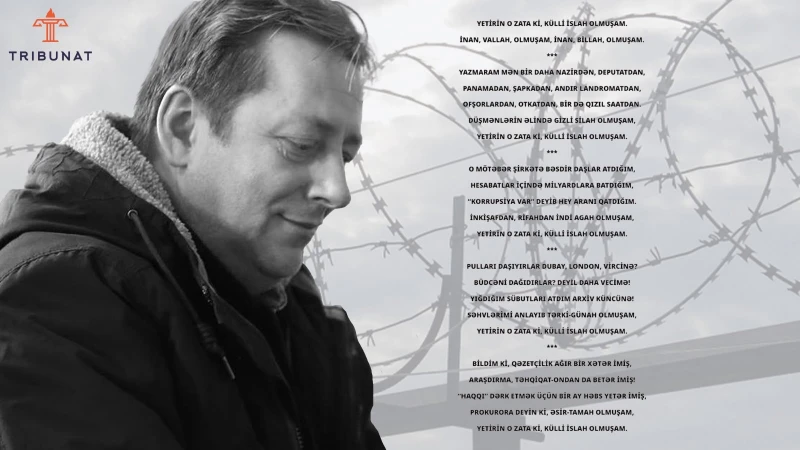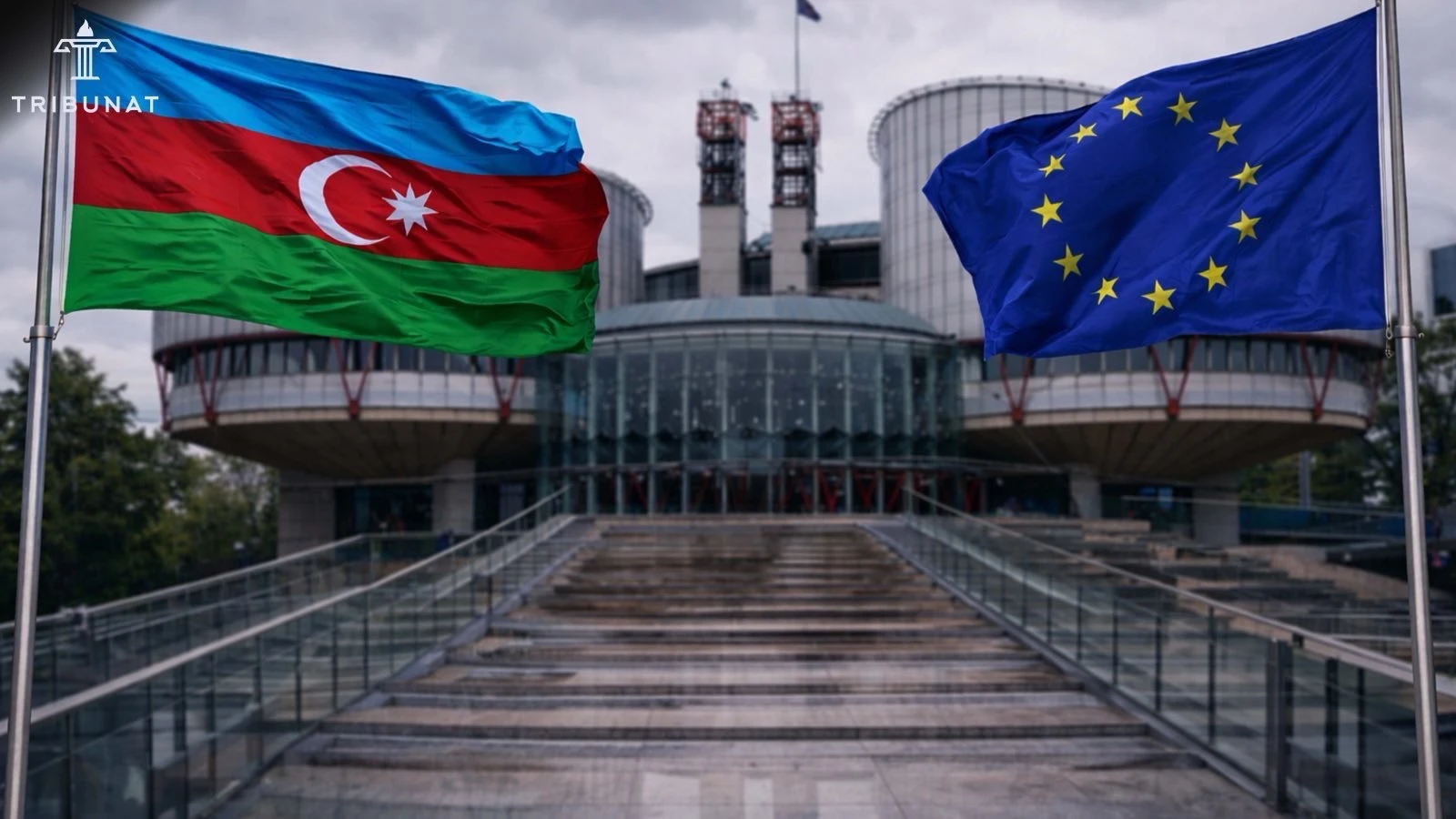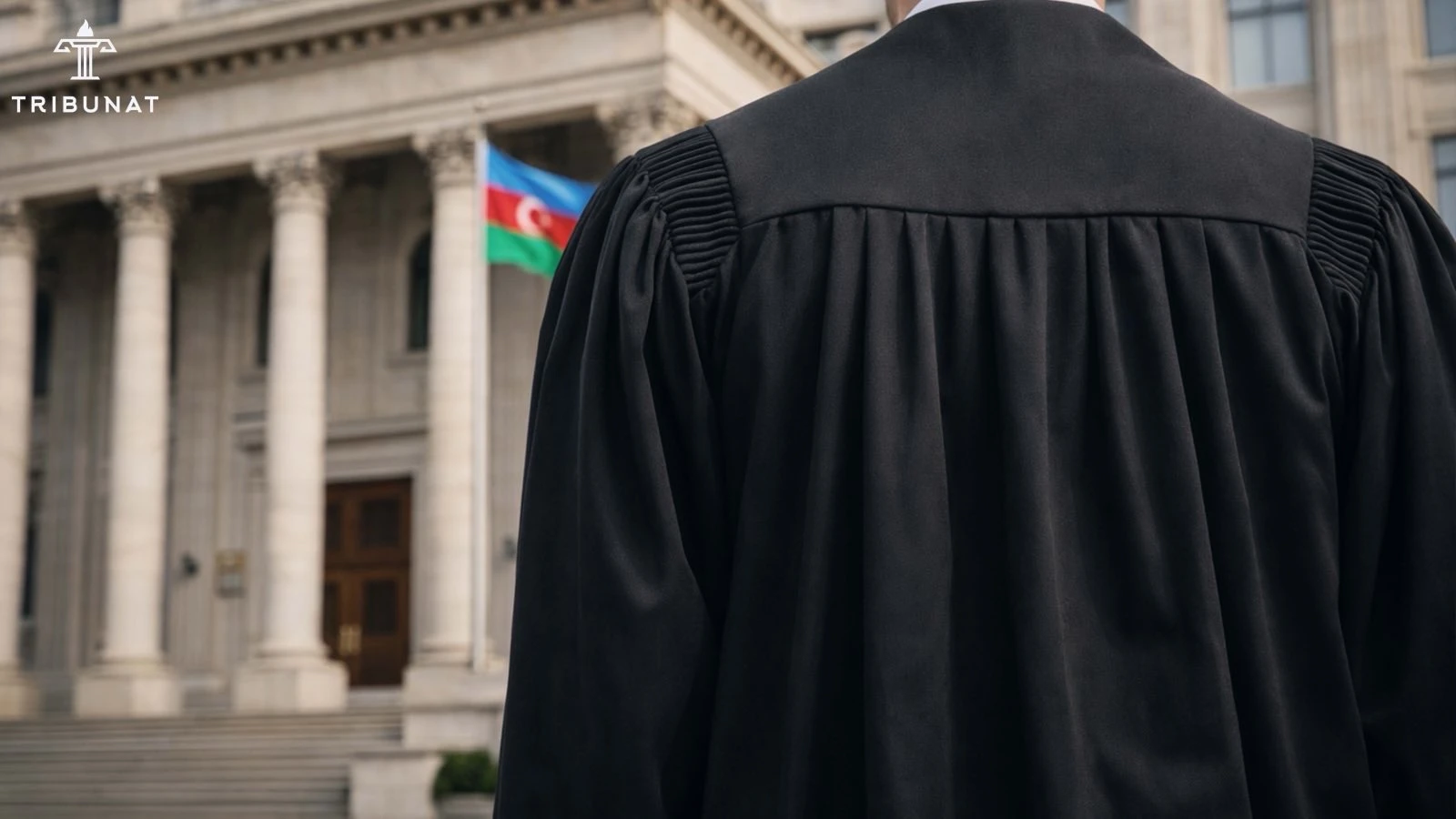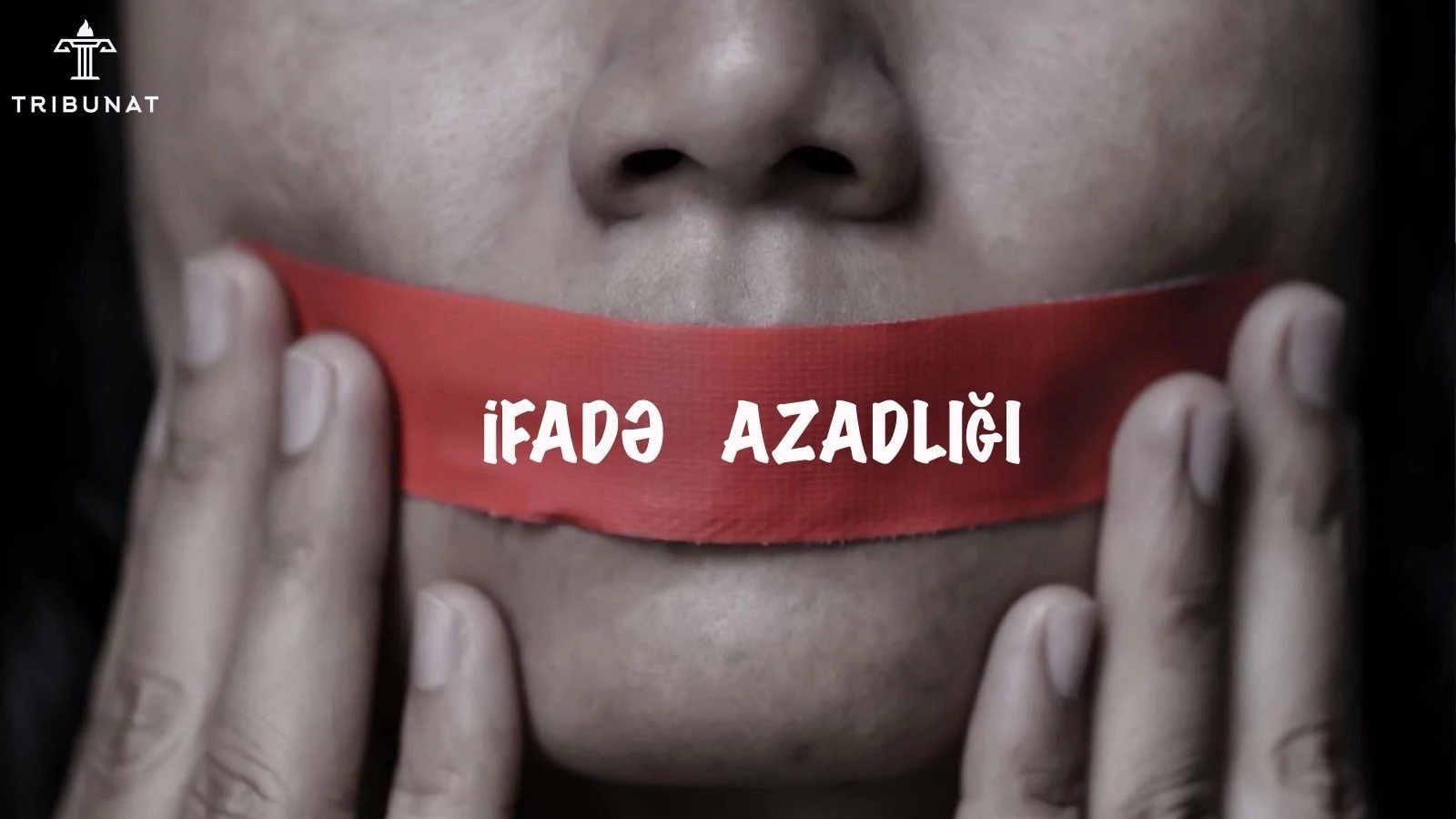The satirical poems of Hafiz Babali, an investigative journalist arrested in relation to the “Abzas Media” case, were confiscated by the staff of the Baku Investigative Detention Center (hereinafter, BIDC). According to reports, a search was conducted in his cell and dozens of poems of his authorship were seized. The head of the detention center, Elnur Ismayilov, brought Babali and warned him not to write such poems again.
Though the reports by local and social media users mentions the journalist's several poems, only one of his poems, which was confiscated in the detention center, has been published. Babali's poem, titled "Inform him that I have been completely reformed”" ironically criticizes the ruling elites, the journalist "promises" not to write about "sensitive" topics such as corruption, budget mismanagement and etc., reflects on the fact that even a month of imprisonment has reformed him and that this message to be delivered to the person who decided to arrest him.
“Tribunat” has analyzed the legality of the confiscation of Hafiz Babali’s poems.
Article 15.1.8 of the Law “On Ensuring the Rights and Freedoms of Persons in Places of Detention” (hereinafter, the Law) and paragraph 8.1.8 of the “Internal Disciplinary Rules of Pre-trial Detention Centers” (hereinafter, the Rules) regulate the rights of detainees to use, including special, to borrow literature, newspapers and magazines for use from the library of the pre-trial detention center, or to purchase stationery, literature, newspapers and magazines from a trading kiosk at their own expense or to subscribe via a representative of the pre-trial detention center administration.
Article 15.1.14 of the Law and paragraph 8.1.14 of the Rules provide for the right of detainees to retain writings or copies of the result of their own intellectual activity.
The referred norms allow Babali to engage in artistic creativity and keep the resulting products.
Both documents, as well as the annexes to the Rules, do not contain writings or copies of intellectual activity in the list of items prohibited from being prepared, stored, carried, transported, or used by a detainee in pre-trial detention centers.
Accordingly, the confiscation of Babali's poems by the BIDC employees and the administration’s warning should be considered illegal.
While the European Court of Human Rights (hereinafter, ECtHR) has recognised a wide margin of appreciation for domestic authorities in the execution of sentences, “the Convention does not stop at the prison gate” (see Khodorkovsky and Lebedev v. Russia, §836).
It is unacceptable for persons detained in prisons to be deprived Deprivation of certain rights and freedoms of detainees solely on the basis of their status is unacceptable (see Hurst v. the United Kingdom, § 69). Detainees continue to enjoy fundamental rights and freedoms, including freedom of expression (see Yankov v. Bulgaria, § 126).
In Zayidov v. Azerbaijan (no. 2), the Court considered the confiscation of a journalist's manuscripts in a detention center as a violation of his freedom of expression.
In this case, the applicant, Ganimat Salim oglu Zayidov (better known by alias, Ganimat Zahid), had written a manuscript in the “journalistic genre” reflecting his impressions, experiences, interesting stories and other aspects of the penitentiary institution during his time in the BIDC (formerly, this name was not attributed to current detention facility in Kurdakhani, but the earlier detention facility in Bayil – ed.) and the prison. After the manuscript was ready, the applicant presented a copy to the institution’s authorities and asked them to deliver it to his relatives, but the manuscript was confiscated and destroyed by burning.
The applicant reached the Court, alleging a violation of his right to freedom of expression, as protected by Article 10 of the Convention.
During communication of the application, the Government relied on Articles 105, 110 and 182 of the Internal Disciplinary Rules of Penitentiary Institutions, adopted on 24 March 2004, as the legal basis for the confiscation and destruction of the manuscripts, indicating that the manuscript contained “indecent content” and “disclosure of the information about the penitentiary institution which is not permitted”.
ECtHR, reviewing the Rules, stated that such a formulation of the legislation did not meet the Convention’s “quality of law” standard, taking into account that “indecent content” and “the information not permitted to be disclosed” were sufficiently broad. Secondly, the Rules did not contain sufficient procedural guarantees against arbitrary decisions of the administration. Therefore, the applicant, who has faced a confiscation and did not agree with such a decision, had rather limited possibilities to challenge the decision. In addition, Zayidov’s manuscripts were interpreted by the penitentiary institution as “correspondence”. Such an interpretation is directly contrary to the natural understanding of the legislation, since if correspondence is a communication for private purposes, then the applicant’s manuscript was journalistic material. Resultantly, such confiscation also does not meet the “prescribed by law” standard for interference with freedom of expression, since it is not directly reflected in the legislation.
Even if it were assumed that the government's position on this matter could be taken as a legal basis and Babali's poems could be treated as correspondence, there still would be a violation of the journalists’ rights.
In accordance with Article 17 of the Law and Article 12 of the Rules, the restriction and censorship of other correspondence received and sent by detainees, with the exception of correspondence with their defense counsel or other persons providing judicial assistance on legal grounds, may be carried out only for three purposes - to prevent crimes being prepared (1); to ensure criminal prosecution and the safety (2); and to ensure the regime in the place of detention (3). In the first two cases, a reasoned decision of the body conducting the criminal proceedings, and in the latter case, a reasoned decision of the administration of the place of detention is required.
Nonetheless, the seizure of Babali's satirical poems by the BIDC employees does not meet any of these three objectives. Since his poems are neither related to the crimes in preparation, nor do they hinder the prosecution of crimes and the safety of individuals, nor do they pose a threat to the regime in the place of detention.
Conversely, interference with correspondence may only occur with a reasoned decision of the body conducting the criminal proceedings and the administration of the place of detention.
As can be seen from the Zayidov, although the penitentiary service officers referred to “indecent content” and “information not permitted to be disclosed” in the destroyed manuscripts, there was no excerpt in the judgment to support the cause (§70).
Article 10 of the Convention permits interference with freedom of expression only if it is prescribed by the law, is necessary in a democratic society, is necessary in the interests of national security, territorial integrity or public order, for the prevention of disorder or crime, or for the protection of public health or morals.
Since there is no legal restriction on Babali's critical poems written in detention, there is no need to examine whether the interference with his freedom of expression pursued any legitimate aim and was necessary in a democratic society.
Additionally, since the rules for the detention of persons under investigation were not adopted during Zayidov's case (the incident occurred in 2008), the Internal Disciplinary Rules of Penitentiary Institutions, which were in force until February 10, 2011, were applied to his complaint as one of the local legislative acts and as a ground. However, by the decision of the Cabinet of Ministers No. 63 dated February 26, 2014, the "Internal Disciplinary Rules of Pre-trial Detention Centers" were adopted in Azerbaijan. Yet, these Rules did not consider the main issue raised by the precedent - the fact that the artistic creative work of a person under criminal prosecution goes beyond the concept of correspondence and must be regulated independently. Despite the fact that ECtHR’s decision was announced on March 24, 2022, no changes were subsequently made to the domestic legislation in accordance with this decision, and clear provisions on whether the creative works of arrested persons are correspondence or intellectual property products did not lead to a legislative solution.
Thus, the confiscation of the poems of investigative journalist Hafiz Babali by the penitentiary administration should not be considered an isolated case.
Detained journalists in Azerbaijan are periodically harassed for their public statements and investigations into various problems in the detention center. For example, Ulvi Hasanli, director of Abzas Media was threatened by the head of the detention center, Elnur Ismayilov, for covering torture cases in the detention center, alongside with Akif Gurbanov, spokesman for the Third Republic Platform, for his critical views, detained in relation to the Toplum TV case.
The persecution of dissidents with politically motivated charges, and the pressure faced in prisons for the opinions expressed, should be considered an indicator of the increasing intolerance for freedom of expression in the country year by year.
In the World Press Freedom Index published by the international media organization Reporters Without Borders in early May of the current year, Azerbaijan ranked 167th out of 180 countries. The country was one of the three countries with the worst media freedom in the Eastern Europe and Central Asia regions, falling just one place behind Belarus.
"Tribunat" concludes that the confiscation of the poems of investigative journalist Hafiz Babali in the detention center is a violation of freedom of expression. The interference with his freedom of expression is not provided for by law, and this incident goes beyond the illegal restriction of the artistic creativity of sole detainee and is pertained to the broader context of the persecution of freedom of expression in the country.






